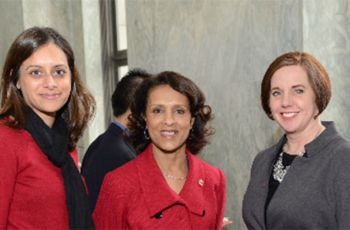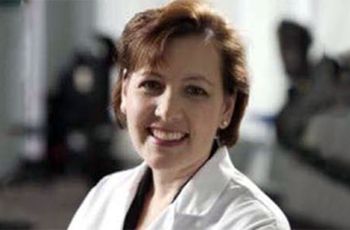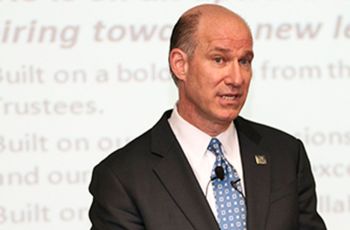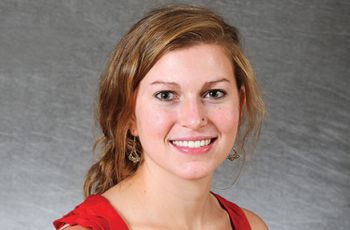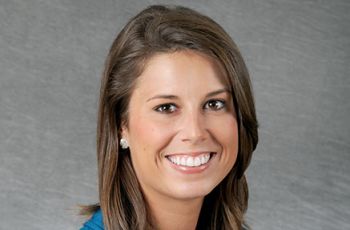Featured News
Gearing up for Match Day 2013. Take a look back at Match Day 2008, through the eyes of Sigrid Bairdain, M.D. '08, M.P.H.
Each spring, medical students at GW’s School of Medicine and Health Sciences (SMHS) embark upon an annual rite of passage, taking their talents from the classroom to the stage to perform parodies, skits, and choreographed dance numbers in a time-honored tradition known as the follies.
GW SMHS participated in the Sister to Sister Foundation's annual heart screening event on Capitol Hill. The event offered free heart screenings and heart-healthy education to legislators and their staff members.
It's American Heart Month. Richard Katz, M.D., Bloedorn Professor of Cardiology, offers tips to GW Today to avoid dangerous heart problems.
Addressing the GWU medical community, Julie Silver, M.D., assistant professor of physical medicine and rehabilitation at Harvard Medical School, discussed the importance of cancer rehabilitation, specifically its role in the cancer care continuum, during a conference hosted by the GW Cancer…
Dr. Akman hosted a town hall to discuss his priorities as the new vice president for health affairs and dean, addressing the school’s efforts around scholarships, research, diversity and philanthropy.
Ask medical students what is most important to them and you get similar responses— support for their education and overall well-being. That’s certainly the case for Amy Waldner, a third-year medical student at the George Washington University (GW) School of Medicine and Health Sciences (SMHS), who…
The Upward Bound Program in GW’s School of Medicine and Health Sciences (SMHS) is rolling into 2013 with high energy and purpose.
The new year often symbolizes new beginnings and that couldn’t be more true for Kelsey Young, a third-year dual-degree physician assistant (PA)/M.P.H. student, at the George Washington University (GW) School of Medicine and Health Sciences (SMHS), who will begin her duties as chief delegate for the…
This year’s flu season is in full swing, with District health officials reporting 310 cases since September. That’s already more than triple the amount seen last season—and there’s still about half the season left.


